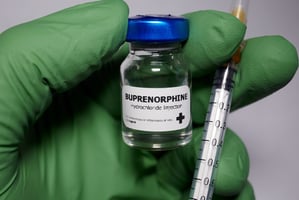Less than half of individuals who were seen in an emergency department (ED) in Ontario for a mental...
Progesterone Modulator May Reduce Symptoms of Premenstrual Dysphoric Disorder

Ulipristal acetate (UPA), a progesterone-modulating medication used as an emergency contraceptive and treatment for uterine fibroids, might help alleviate the psychological symptoms of premenstrual dysphoric disorder (PMDD), according to a study published today in AJP in Advance. An estimated 3% to 5% of women of reproductive age are believed to experience PMDD, which is characterized by mood swings, irritability, anxiety, depression, and physical symptoms in the days preceding menstruation.
For the current study, Erika Comasco, Ph.D., of Sweden’s Uppsala University and colleagues recruited women aged 18 to 46 who were diagnosed with PMDD, as determined by scores on the Daily Record of Severity of Problems (DRSP) over a two-month period. This scale measures the time course and severity of 11 common PMDD symptoms. A total of 95 participants were then given either 5 mg UPA or placebo pills daily over the course of three menstrual cycles.
At the end of the study, DRSP scores (the average among the five days prior to menstruation) had fallen by an average of 41% among women taking UPA compared with 22% among women taking placebo. In addition, half of the women taking UPA achieved full remission (defined as no individual DRSP symptom above a score of 3) compared with 21% in the placebo group.
Among specific symptoms, women taking UPA reported greater improvements in symptoms of depression, anger, and fatigue relative to women taking placebo. UPA was not associated with improvements in anxiety or guilt, and it did not significantly improve any physical symptoms, such as headache or feeling bloated.
There were similar dropout rates in the UPA and placebo groups, and the only side effect more common in the UPA group compared with the placebo group was nausea. Some data have suggested that extended UPA use may cause liver damage (which is why UPA is not approved for fibroid therapy in the United States), but none of the participants experienced any liver issues during the study.
“As this proof-of-concept study is the first to evaluate UPA for treatment of PMDD, we cannot make any treatment recommendations at present,” Comasco and colleagues wrote. “Further studies to validate our findings, and positive outcomes from ongoing liver-safety studies, are needed.”
For related information, see the Psychiatric News article “Can Hormonal Treatments Help Your Patients?”
Don't miss out! To learn about newly posted articles in Psychiatric News, please sign up here.






